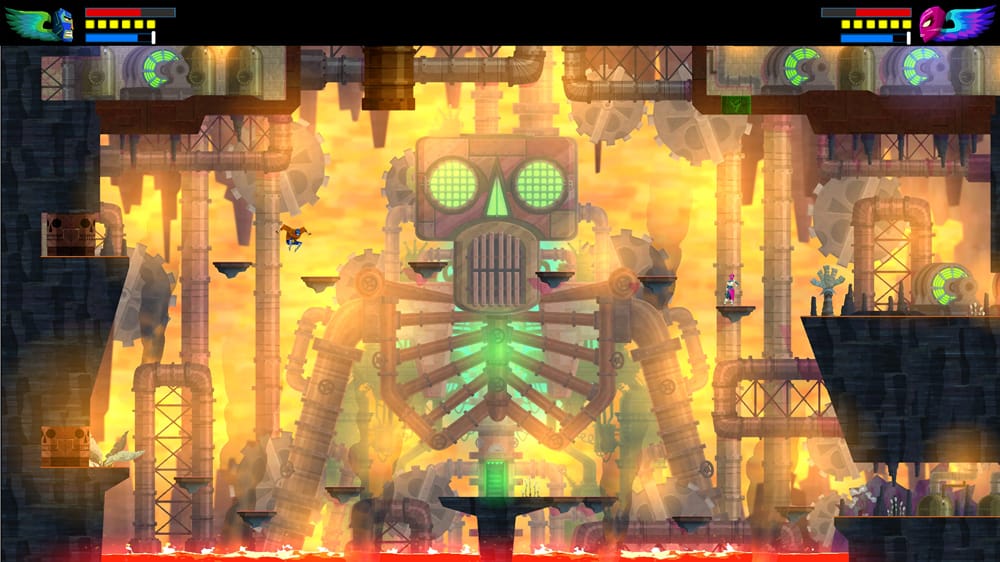New podcast is dedicated to discussing death and videogames

A new podcast called PlayDead explores the intersection of loss, death anxiety, death positivity, and game mechanics. It’s hosted by Gabby DaRienzo, who openly confesses to being obsessed with “death positivity.” And, in fact, DaRienzo wrote a piece for Kill Screen last year, titled Death Positivity in Videogames, which foreshadows the focus of this podcast in many ways.
It’s a podcast that seems to be actively looking to contextualize videogames as yet another artistic medium exploring the theme of death. Even the earliest videogames such as Spacewar! (1962) are predicated on the idea that a game ends when a player dies. Often it’s the case that GAME OVER = Death of the player and/or losing the game. Diving into what videogames have to say about death proves to be a rich topic with plenty of history behind it. That should be no surprise given that our mortality is a fundamental part of what is quite severely termed “the human condition.”
Further, PlayDead argues that we are often largely unaware of death and any meaningful impact it has beyond being a means to progress, or to ending progress, within videogames. However, that does not mean that many games are not, or have not, been looking to explore death in new ways, or that the more “stale” aspects of death in games have no worth.
what videogames have to say about death is a rich topic with plenty of history behind it
Another core aspect of PlayDead is to unpack where our perceptions and feelings about death come from. In a world where every community and culture, the world over, and throughout history, has engaged with death in so many ways, it’s odd that we often have a very Eurocentric idea of death. Death is something to be feared. This is easily shown through the now almost ubiquitous figure of “the Grim Reaper,” whose personified form of a black-hooded, scythe-wielding skeleton originated in medieval Europe. This figure, as well as its accompanying associations of fear, villainy, and darkness, were deeply entrenched through Gothic fiction of the 18th and 19th century, which has gone on to inform mainstream media’s depictions and understandings of death today. The awareness of this is shown tongue-in-cheek through the podcast’s emblem of the Grim Reaper playing in an empty arcade.

The very first episode of the podcast tackles this through the discussion with Augusto ‘Cuxo’ Quijano, the Concept Artist at Drinkbox Studios, who is known for their game Guacamelee! (2013). Quijano describes wrestling with ideas and feelings of “death anxiety,” and how working with the idea that a death realm may not be the gloomy, Gothic trope it’s so often made out to be was part of an incredibly cathartic and important process. This allowed him to think of death differently on a personal level, as well as cause it to manifest differently through the game’s mechanics. Hence, in Guacamelee!, the death realm is showed to be glowing and bursting with a vibrancy normally relegated to the association of life.
The second episode explores ideas of players killing themselves within videogames as a means to to push and explore the boundaries and mechanics of the game. It also delves into the larger theme of feelings of suicide and self-harm from a game creator’s perspective. It also takes on the concept of martyrdom, both in real life as well as within videogames, and how characters and their deaths within games are often framed as noble or part of the grind of achieving a higher cause (such as succeeding in the game). This can become absurd when players are simply testing the boundaries of the game or, for example, even deliberately trying to kill their character off to see a new cutscene.
Be sure to subscribe to PlayDead on iTunes, or listen via Dork Shelf or your podcast player of choice.
You can also follow Gabby DaRienzo and PlayDead on Twitter



